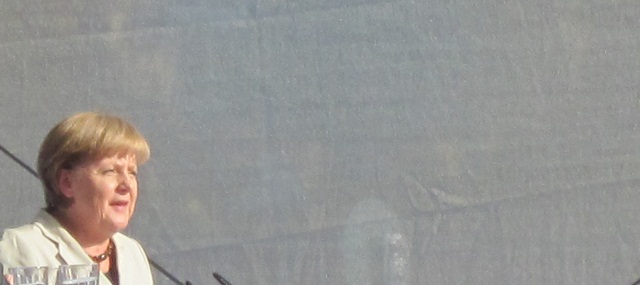
Germany is wealthier than ever. But who is tapping that wealth? The wealthy. Private asset volume in Germany has rocketed since 2007, yet 10 percent of the population amass 53 percent of the total. And the state is growing poorer: its net assets have decreased in €800 billion during the past 20 years.
Income has dropped by at least 40 percent of the people employed. Jobs with less-than-20-hour work rotas, €400-a-month jobs and temporary hirings represent nowadays 25 percent of all jobs. And while in, say Spain, 32 percent of university students come from low-income and working class families, in Germany they are a mere 6 percent, which pairs Chancellor Angela Merkel’s country with Slovenia as the OECD members with the lowest rates of social diversity accessing high education.
Up to 8 million workers have a minijob or low-wage positions in the services sector. Their income is, by the way, below the minimum €600 threshold that is usually set as the sufficient-insufficient barrier to live in Germany.
Almost three million Germans live on social benefits because they have nothing else, and they don’t have pensions. In fact, they cannot receive any help, not even national health service attention, until they have used up first all their assets. Then, aid comes under strict conditions, one of which is to do community work paid with one euro per hour.
Mainly women and independent male workers born between 1957 and 1966 risk suffering poverty when they retire. To receive an above-€650 pension, Germans must have worked during 35 years at least, without gaps, with a gross salary of €2,500.
So what will Merkel do? Because pensions are scheduled to be cut down in the future, as introduced by the previous social-democrat government. Today, Germans receive 50 percent of their net salary if they paid social insurance during 45 years. After the reform takes place, it will be 43 percent, an many pensions, like mine, will be lower than €600.






Be the first to comment on "Germany’s boom is wreaking the country"